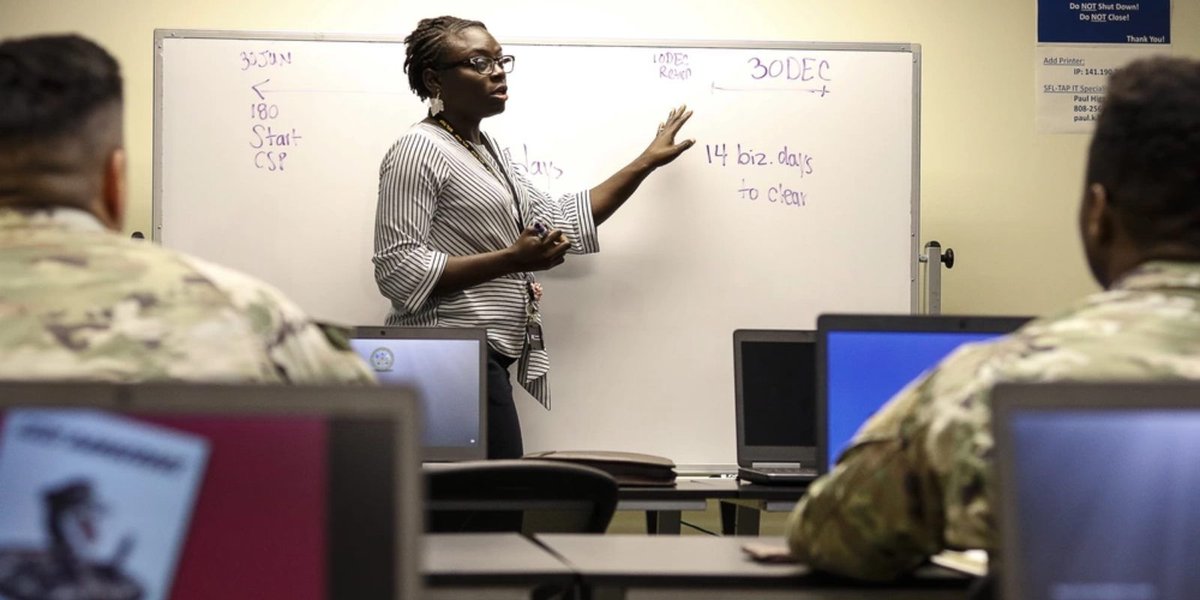THE ARMY TRANSITION ASSISTANCE PROGRAM IS HELPING SOLDIERS AFTER SERVICE DESPITE SETBACKS
COMMENT
SHARE

Accessing the Transition Assistance Program Through the Army
The Army Transition Assistance Program exists to aid military families in their efforts to integrate into civilian life. The ways in which this program helps is through providing a myriad of resources such as information and training to prepare these families for the changes ahead.
Some of the resources that one could expect to receive from this program include: counseling, workshops on employment and education, and seminars on Career Readiness Standards (CRS).
These resources ensure that active-duty service members are adequately prepared for their assimilation into the civilian world. This is done in the hopes that service members will find success and fulfilling careers/lives after they depart from the military.
U.S. Army Transition Assistance Program Eligibility
There are certain parameters in place regarding an individual’s eligibility for the Army Transition Assistance Program. All Soldiers who are completing 180 days or more of prolonged active-duty service are required to meet the CRS guidelines.
Soldiers can begin receiving counseling in regards to transitioning as well as employment assistance 18 months prior to making the shift to civilian life.
Following a Soldier’s release from active-duty, they and their families are still permitted to to participate in Transition Assistance Program services for up to 365 days after their official release from the military. TAP services can also be initiated by the service member or any eligible family members a full 24 months before the retirement date, and eligibility will remain for life.
The Army Transition Assistance Program Continues Improving Its Methods
When Soldiers retire, there's a process to it, which includes classes and assistance through the Army Transition Assistance Program. However, there have been concerns that the timeline of the process only adds more stress due to the time crunch on top of serving one’s nation.
In 2023, a pilot program began, allowing Soldiers in the U.S. Army to submit their retirement packets up to two years in advance. While submissions must be made at least a year in advance, this expansion was an effort to help make transitions smoother.
"We're looking at ways to help provide stability and predictability for Soldiers ready to retire after a long, successful career," said Sgt. Maj. Michael Grinston.
The Transition Assistance Program Army mandates are going to involve service members that have served 20 or more years of active duty, but there are Soldiers who may also qualify if they have to retire due to medical concerns.
Watchdog group Government Accountability Office (GAO) discovered that the Army Soldier for Life Transition Assistance Program had issues creating stressful separations for Soldiers. This included the fact that Soldiers were beginning classes later than they should have.
What GAO found was, “Over 90 percent of transitioning servicemembers participated in the TAP counseling pathways, according to GAO's analysis of TAP data from April 1, 2021, to March 31, 2022. In addition, participation in 2-day classes on employment, higher education, vocational training, and entrepreneurship increased. Nonetheless, the service branches waived many servicemembers from attending them.”
The report continued, “Per service branch policies, servicemembers who need maximum transition support must attend a 2-day class, but GAO found that nearly a quarter of them did not. GAO also found that most servicemembers (70 percent) did not start TAP more than 1 year in advance, as generally required.”
But now, efforts are in place to prevent this issue. The Army TAPs program is working to help reduce the impact of transitioning from the military into civilian life by providing a better timeline to complete these courses.
While it’s not 100% clear if the GAO report is what led to these changes, the important thing here is that Soldiers will receive the necessary added time, and the Army is still actively addressing the very areas of concern in 2024.
How to Use the Army Transition Assistance Program
By going online, you can see which workshops you're eligible for and attend accordingly. This initiative is provided by government agencies, including the VA, the U.S. Department of Labor, the DoD, and many other organizations.
Around 200,000 service members return to civilian life each year. These transitions can be difficult, but with the right steps, they can be easier for everyone.
We all know that the mental side of leaving the military is its own battle for some, and this is where the Army Transition Assistance Program can help Soldiers overcome such hurdles with grace.
Making a Smooth Transition Through the U.S. Army Transition Assistance Program
The idea of such a major lifestyle change is understandably daunting. It is difficult to uproot everything you’ve known to suddenly thrust yourself into a world that you aren’t as familiar with. Thankfully, with the resources available through the Army Transition Assistance Program, Soldiers and their families have the tools and knowledge they need to make the transition as seamless as it can possibly be.
Congratulations on this new chapter in your life! We hope it’s everything you’ve imagined it to be!
Updated by Ian Kempf 6/28/2024
Read next: Free HVAC Training Preps Transitioning Soldiers for Civilian WorkThe appearance of U.S. Department of Defense (DoD) visual information does not imply or constitute DoD endorsement. Photo by Staff Sgt. Melissa Parrish U.S. Army Pacific Public Affairs Office
Join the Conversation
Buddy Blouin
Buddy Blouin is a Contributing Writer at VeteranLife.com
Buddy Blouin is a Contributing Writer at VeteranLife.com
SHARE:



